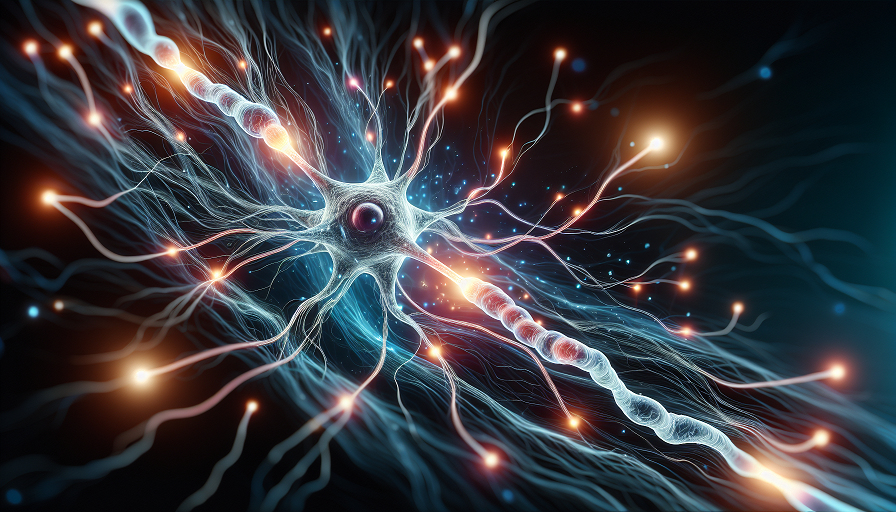
Have you ever wished you could learn faster, remember more, and stay laser-focused during those long study or work sessions? You’re not alone. In this age of information overload, the ability to process and retain information efficiently is more important than ever. Welcome to the world of neurohacking, where understanding how your brain works can unlock a whole new level of cognitive function. Here we look into practical tips and strategies to fine-tune your brain’s abilities.
Contents
Understanding Neurohacking
Neurohacking refers to the process of optimizing the brain’s performance by using various tools and techniques. It’s about becoming more aware of how your brain operates and finding ways to enhance its capabilities. Think of it as a personal upgrade, allowing you to tap into your brain’s full potential, be it for academic purposes, professional growth, or personal development.
The Brain’s Basic Functions
To appreciate neurohacking fully, it’s helpful to understand the fundamental functions of our brains. Primarily, the brain is responsible for processing information, storing memories, and regulating our behavior and emotions. Within this complex organ, neural pathways allow communication between neurons, helping us learn, make decisions, and adapt to new situations.
The field of neurohacking leverages this understanding to hack better learning, sharper memory, and improved focus. Whether it involves changing habits, practicing certain mental exercises, or adjusting your environment, many of these strategies require no special tools—just a willingness to experiment and observe how your brain responds.
Boosting Learning: Strategies and Techniques
Learning is a crucial part of neurohacking. It’s not just about absorbing information faster, but doing so in a way that makes it stick. One effective method is active learning—engaging with the material instead of passively reading or listening. This might include teaching others what you’ve learned, quizzing yourself, or summarizing information in your own words.
Another great technique is spaced repetition. Instead of cramming, spread your study sessions over time. This approach leverages the brain’s natural ability to consolidate learning, turning short-term memories into long-term knowledge. Technologies like spaced repetition software can help manage this process, making it easier to remember information over long periods.
Creating a Conducive Learning Environment
Your surroundings play a vital role in how well you learn. A clutter-free, quiet space can help minimize distractions. Additionally, consider implementing a designated study time to condition your brain to focus better during these periods. Lighting is also essential—natural light is best, but if that’s not possible, ensure your study space is well-illuminated to reduce eye strain.
Memory Improvement: Tips to Remember Better
Memory enhancement is an integral aspect of neurohacking. Mnemonics, such as acronyms or rhymes, offer a classic and effective means of memorizing information. Visualization is another powerful tool; by creating vivid mental images, you make the material more memorable.
For many, meditation and mindfulness exercises can significantly enhance memory function. Regular practice helps to improve concentration and self-awareness, which in turn supports better information processing. Simply spending a few minutes each day to clear your mind can make a big difference.
Enhancing Focus: Staying on Track
In today’s world of multiple distractions, maintaining focus can be challenging. One popular technique is the Pomodoro Technique, in which you work in focused bursts with planned breaks in between—often 25 minutes of work followed by a 5-minute break. This method reduces burnout and helps maintain consistent productivity levels.
Another strategy is to limit multitasking. Studies reveal that juggling too many tasks can lead to decreased productivity and increased errors. Instead, try batching similar tasks together and focusing on completing one task at a time for improved results.
Managing Digital Distractions
Your devices, though essential, can be distracting. Consider using apps and settings that block notifications or limit access to distracting websites when you need to concentrate. Practice setting boundaries for digital usage during high-focus periods to preserve your mental energy.
The Role of Nootropics and Brain Supplements
Nootropics, or brain supplements, are natural or synthetic substances that have a reputation for enhancing cognitive function, such as memory, focus, and creativity. They are often referred to as “smart drugs” because they can give your brain an extra push when needed. Popular nootropics include coffee and tea (thanks to their caffeine content) and herbal supplements like ginkgo biloba or rhodiola rosea.
Before diving into the world of nootropics, however, it is important to consult with a healthcare provider. While many of these substances are safe for most people, everyone’s body and brain chemistry are different, so it’s crucial to find what works best for you without unintended side effects. Use brain supplements as an addition to healthy habits, not as replacements. Keep in mind, no supplement can substitute for a balanced diet, regular exercise, and adequate sleep, which are central to maintaining brain health.
Putting It All Together
Neurohacking is a personal journey. It involves experimenting with different strategies to find what truly makes a difference for you. Whether it’s adopting new learning techniques, reshaping your environment, or exploring the realm of nootropics, each step can enhance how your brain functions.
Be patient with yourself as you embark on this path of self-improvement. Notice how these changes impact your life, and adjust as necessary. By reevaluating and enhancing what we understand about learning, memory, and focus, we become better equipped to thrive in both personal and professional environments.
Start small, remain consistent, and watch as your brain unlocks new potentials. Neurohacking isn’t just about maximizing performance—it’s about gaining a deeper understanding of yourself. Happy brain hacking!

